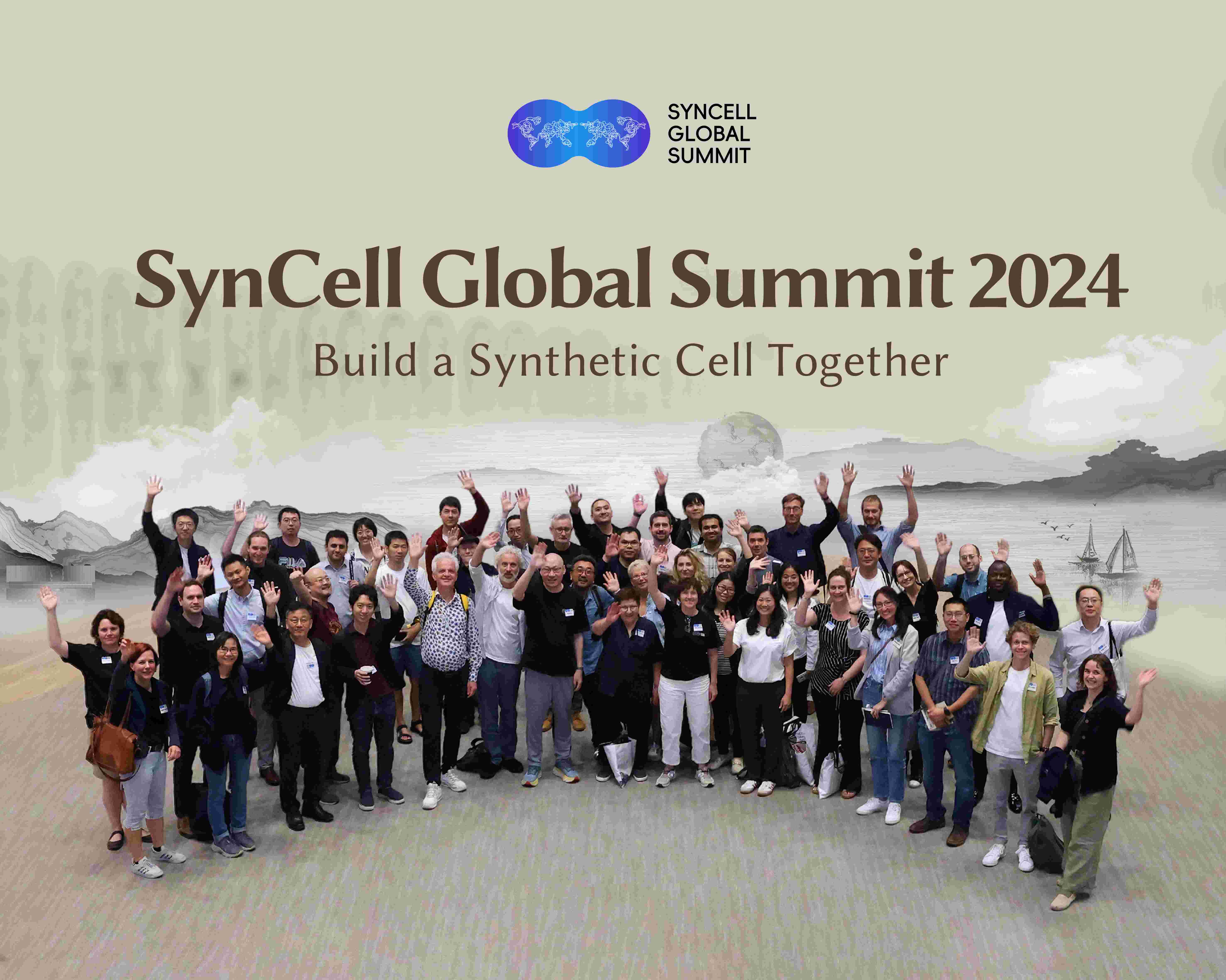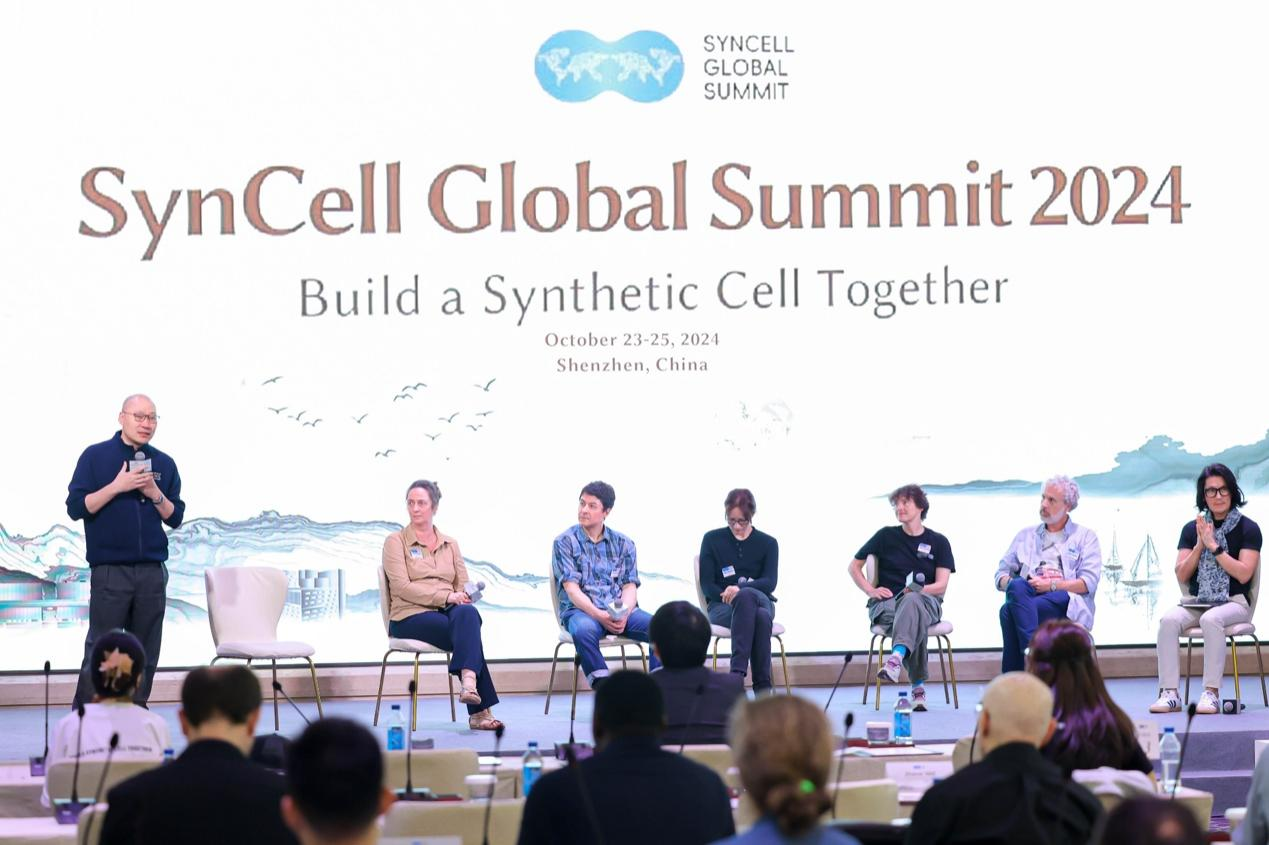
From October 23rd to 25th, the 1st SynCell Global Summit was successfully held in Shenzhen. As an academic event in the field of synthetic cells, this conference invited representatives of scientists in the field of synthetic biology from 37 universities and scientific research institutions from 15 countries on 5 continents to share the development status, cutting-edge scientific issues, and technological innovations in the field of synthetic cells, and explore potential opportunities for international cooperation.
This conference is a strategic discussion on the development of science and technology and international cooperation in the field of global synthetic cells, marking a new stage of expanding cooperation and rapid development of research in this field.
At the meeting, Liu Chenli, a researcher at the Shenzhen Institute of Advanced Technology of the Chinese Academy of Sciences, announced the establishment of the Organizing Committee of the International Alliance for Synthetic Cells, which is composed of representatives from China, the United States, France, the Netherlands, Germany and Singapore, which is a firm commitment to continue to promote global cooperation in the field of synthetic cells. Marileen Dogterom, Member of the European Steering Committee of the Synthetic Cell, Member of the Royal Netherlands Academy of Arts and Sciences, and Chair Professor of Delft University of Technology, announced that the 2nd International Conference on Synthetic Cells will be held in May 2026 at Delft University of Technology, the Netherlands.

The first International Alliance of Synthetic Cells
Newly selected Nobel laureates and representatives of scientists in the field of synthetic biology from around the world had an in-depth dialogue to explore scientific development
The conference was co-chaired by representatives of scientists in the field of synthetic biology from many countries, including Professor George Church of Harvard University, Professor Jay Keasling of the University of California, Berkeley, Professor Cees Dekker of Delft University of Technology, Germany, Professor Petra Schwille of the Max Planck Institute for Biochemistry, Germany, and Professor Ariel Lindner of the French National Institute of Health and Medical Research. Professor Matthew Chang of the National University of Singapore, and Chen Li Liu, Research Fellow of Shenzhen Institute of Advanced Technology, Chinese Academy of Sciences.
The conference united the European Synthetic Cell Initiative (SynCell EU), the Build-A-Cell, SynCell Asia, and SynCell Africa, and invited representatives from the Netherlands, Germany, France, the United Kingdom, Denmark, Israel, Austria, the United States, Uganda, Japan, Forty-eight scientists in the field of synthetic biology from 15 countries on five continents, including South Korea, Singapore, Thailand, China and Australia, gathered together, including seven national academicians from the United States, the Netherlands and Germany, including David Baker, winner of the 2024 Nobel Prize in Chemistry, and Kate Adamala, Vincent Noireaux, members of the steering committee of the American Alliance for Building Synthetic Cells.
 Member of the Organizing Committee of the First International Alliance of Synthetic Cells at the closing ceremony of the meeting
Member of the Organizing Committee of the First International Alliance of Synthetic Cells at the closing ceremony of the meeting
Synthetic biology is an emerging frontier interdisciplinary discipline that aims to rationally design and synthesize biological systems with new functions, among which synthetic cells are one of the most challenging propositions in synthetic biology. The realization of synthetic cells will cross the boundaries of life from nothing and help us reveal the ultimate proposition of the essence of life. A series of underlying biosynthetic technologies derived from synthetic cell research are expected to provide new solutions for areas such as healthcare, energy, agriculture, and climate. Therefore, the synthesis of cells is both a fundamental scientific problem and a common pursuit of the global scientific community.
"What do you think is the biggest challenge in moving synthetic systems from inanimate to animate?" At the meeting, in response to the question raised by researcher Liu Chenli, George Church said that although the current synthetic cell system has certain biological functions, in order to achieve a close to the real cellular life system, it still faces great challenges such as how to accurately regulate the concentration of biological macromolecules and coordinate the speed and efficiency of different biological processes.
David Baker pointed out at the conference that artificially engineered proteins are an important direction for synthesizing cells. After hundreds of millions of years of evolution, the structure of biological macromolecules is extremely complex. One way to achieve a biological function similar to that of a real biological macromolecule is to first understand how it works, and then simplify the design with the help of artificial intelligence. Another idea is to use artificial intelligence to design from scratch based on the target function. At present, these two ideas have their own advantages, and we need to use them in parallel and iterate in both directions to break through the design of complex biomacromolecules with specific biological functions.
Through in-depth discussion on the diversity of topics in the field of synthetic cells, the participants looked forward to how to further build consensus, promote international cooperation, and effectively address the opportunities and challenges in the field of synthetic cells. With the successful conclusion of this International Conference on Synthetic Cells, it is expected to attract more international scientific research institutions and organizations to join the ranks of cutting-edge research on synthetic cells and promote human well-being.
Reach an international consensus to address the common scientific challenges of all mankind
At the meeting, focusing on the theme of "synthetic cells", the participants focused on the scientific challenges, technological breakthroughs, artificial intelligence empowerment, application scenarios, social impacts and other aspects of this field, and exchanged in-depth views on the routes and concepts, latest discoveries and cooperation visions of synthetic cell research in various regions of the world in the form of academic reports and roundtable forums, and conducted in-depth discussions on how to effectively promote international strategic discussions and establish long-term cooperation mechanisms.
The participants agreed that building a global scientific cooperation network around the bottom-up "synthetic cell" is not only a new opportunity to promote knowledge sharing, technology exchange and talent training, but also a milestone to promote the deep interaction and sustainable development of global science and technology.
Professor Petra Schwille, Chief Co-Coordinator of the Max Planck Synthetic Biology "MaxSynBio" Research Program in Germany and an important promoter of the European Union of Synthetic Cells, mentioned at the meeting that the holding of the first International Conference on Synthetic Cells will break the geographical and cultural boundaries of global synthetic cell research, promote scientific research cooperation between different continents and regions, strengthen resource sharing, and promote the free flow of scientific knowledge and the growth of young talents.
"We are aware that geographical separation is still a challenge for global synthetic cell research, and we hope that through this conference, we can communicate with more researchers from Europe and Asia, brainstorm ideas, and achieve a truly open international collaboration across geographical and institutional boundaries." Professor Kate Adamala, one of the founders of the Alliance for Building Synthetic Cells in the United States, is full of expectations for the prospect of international cooperation in synthetic cell research.
Liu Chenli, a researcher at the Shenzhen Institute of Advanced Technology of the Chinese Academy of Sciences, said that the convening of this conference not only deepened the mutual exchanges between scientists from all over the world in the field of synthetic cells, but also opened up new ideas for solving interdisciplinary scientific research problems. More importantly, during the meeting, the organizing committee of the International Alliance of Synthetic Cells was established and a consensus was reached. The International Conference on Synthetic Cells will be held on all continents in turn, which will strongly promote more international cooperation projects and exchange activities in the future. A stable cooperation mechanism will surely attract more international scientific research institutions and organizations to join the ranks of cutting-edge research and address the common scientific challenges of all mankind.